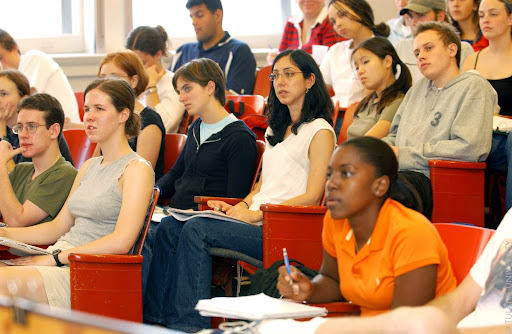Men in science, technology, engineering and mathematics occupations have gained greater reputation in many high-tech industries while women have been left under-represented throughout their history.
Only in the past few decades has the feminist movement pitched questions about gender stigmatizing and employment inequality in STEM into the national discussion. In response, the first Association for Women in Science emerged to encourage women to take leadership roles in scientific fields.
“We live in a sexist society, and girls and women are still subtly discouraged from pursuing interests in science,” said Dr. Joan Herbers, president of the AWS, in an interview with the American Federation for Aging Research. “The pipeline gets increasingly leaky as one progresses through the educational and employment sectors.”
Indeed, according to the Department for Professional Employees, women comprised 46.1 percent of science professionals. Female science and engineering graduates are outside of the labor force more frequently than men.
“Out of 46 graduates in the past 10 years, 12 have been female, (majoring in math at Guilford), which is 26 percent,” said Ben Marlin, chair and associate professor of mathematics. “That’s not too far off from my graduate school experience.”
A new study by Yale researchers suggests that science faculty in all academic institutions have clear bias against female scientists. This greatly adds up to STEM-related intimidation and anxiety among women.
“In academia, I have experienced an intolerable amount of ‘knowledge slinging’ as I like to call it,” said senior biology major Ruby Brinkerhoff. “As a woman, I have often struggled with feeling like my voice and my work is second to men’s. However, it is a training that I am trying to unlearn.”
There are various reasons which have impacted female students to seek ways to engage in science careers of their interest.
“Although I haven’t personally felt discriminated against in biology during college, I definitely have felt as though math professors have talked down to me a bit for taking more math focused classes,” says junior biology major Adele Price. “I also worry a good bit over entering the STEM job market, as I know I will likely have to work harder than male counterparts to be acknowledged.”
While women in STEM are undervalued and subject to more stringent standards of evaluation in college and beyond, there are many ambitious female students who are ready to revolutionize women’s roles in science fields.
“I think we need to realize the contributions women have made to science,” said senior biology major Lillie Reiter. “They are not insubstantial. In order to do that, women first have to realize their own brilliance and stand up for it.”
Recognizing personal stories, Guilford’s raising of female professionals in sciences highlights their importance in STEM.
They are eager to share their visions and interests.
“My inspiration to be in STEM comes from wanting to challenge people’s stereotypes,” said sophomore biology major Tasmia Zafar. “I think women should be able to strive for anything they want without fear of failure or judgment. Personally, I have the most passion for science, and so I decided to pursue it.”
Influenced by gender stereotypes, some students have shown initiative to fill the gender gap by fostering gender diversity in science fields.
“I have thought about becoming a teacher and trying to (work especially) with young women, so I could empower them to engage in STEM,” said Price. “I feel like it is important to talk more about the accomplishments of women in STEM, as they are usually not discussed as much as male STEM achievers.”
Learning more about the complexity of this issue and hearing each individual’s voice, we come to realize that we need to act as problem solvers, resource providers and supporters of these women who have ambition and passion for STEM. Fighting disparities and challenging academic institutions across the world are the solutions that can increase women’s presence in STEM industry.
“According to a Buddhist saying of justice and equality, if you have an ability to withhold your passion then you are the only king of your throne,” said sophomore biology major Pema Payang. “And I believe that we, women, have all the necessary abilities to pursue careers in STEM at an equal level to men and are (entitled to) that ultimate throne.”





